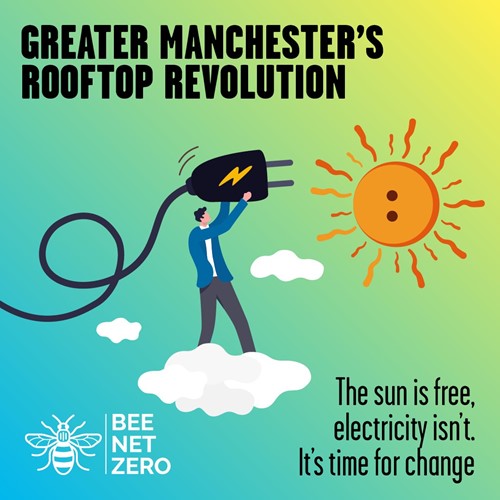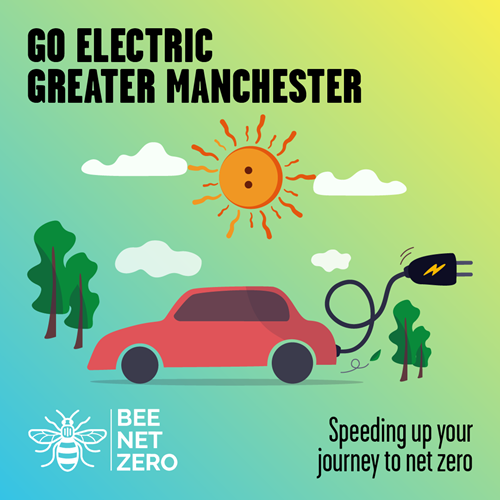

If you're a business owner or leader of an organisation in Manchester, the Bee Net Zero partnership want to help you become greener, save money on your energy bills and prepare for a greener future.
There is a huge amount of support out there for companies looking to become more sustainable, and its hard to know where to turn. Therefore, we wanted to bring all of the local support together, creating a single source of advice that the Greater Manchester business community could trust.
Our partnership has created the most comprehensive support network of any city-region to ensure that our business community has the confidence and guidance needed to become greener.
No matter what size, sector or steps your business has already taken to become more sustainable, the wealth of advice and expertise from Bee Net Zero partners from across Greater Manchester can ensure you're doing the right thing for your organisation and for the planet, helping you save money and implement the right solutions.
Green Economy's Net Zero Toolkit
Greater Manchester has a target to become carbon neutral by 2038, but the region cannot achieve this if businesses are not on board. We have a huge challenge ahead of us, and it's one that we can only solve by working together.
Greater Manchester's CO2 emissions equate to about 3.6% of total UK annual CO2 emissions and contribute to global climate change.
To put Greater Manchester on a path to carbon neutrality by 2038 we need to deliver an annual average of 15% cuts in emissions.
Business emissions count for roughly 1/3 of Greater Manchester's total carbon emissions.
Greater Manchester has over 124,000 businesses, if they all made steps to become greener it could make a huge difference.
Ellard
Find out how Green Economy supported Ellard in their search for solar installers and helped them to better understand all aspects of the transition to solar including costs, timeframes and requirements.
QPSL
Based in Oldham, Greater Manchester, QPSL produces polyvinyl chloride (PVC) and aluminium products for the construction industry. Find out how Green Economy helped them on their solar journey through the Journey to Net Zero programme and online marketplace.
EVC Group
EVC Group, based in Bury, has launched a new EV charge point service, increased headcount by three and gained sales worth £200k, following support from Green Economy.
Air Handlers Northern
Green Economy helped Salford based Air Handlers Northern (AHN) manage a solar installation, including finding a trusted local supplier, which reduced the company's reliance on the grid by 50% and will allow them to become more energy efficient.
Bee Net Zero takes a collaborative approach to helping businesses on their journey to becoming net zero. Bringing together networks, organisations and support programmes from across Greater Manchester, Bee Net Zero makes this transition straightforward and cost-efficient for businesses.

Bee Net Zero are bringing together all of the support, advice and tools that our partners offer to help your Greater Manchester business figure out the logistics of solar, establish the business case and ultimately decide whether if it’s the right cost saving, carbon reducing technology for your business.
Let us help you take the first steps on your net zero journey through the power of solar.

To achieve Greater Manchester's net zero and air quality goals, we need more electric vehicles on our roads and the charging infrastructure to support them. So, we're calling on businesses to help.
EVs can save your business and employees money while reducing your impact on the planet.
Build your Sustainable Future
Find out how we can support your business on your journey to Net Zero